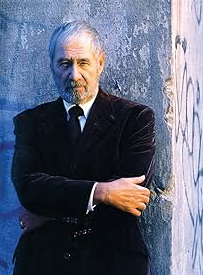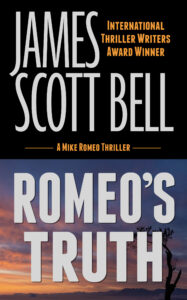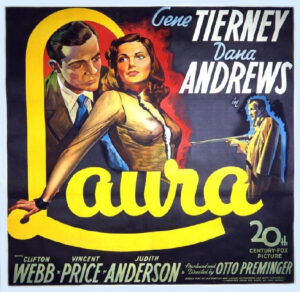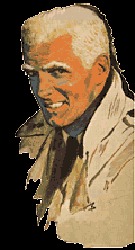by James Scott Bell
@jamesscottbell
 It’s First Page Critique time. Here we go:
It’s First Page Critique time. Here we go:
THE END OF THE SUMMER
TEN YEARS AGO
November. The rain started first thing that morning and Marc Newman listened to the fat drops splatter against the window panes. He sat at his desk, diddling with a pencil, watching the rain and ruminating. She was still on his mind. About nine-thirty the Sheriff and two deputies knocked on the front door. They were there to arrest him for murder. He had been expecting them for months.
He didn’t resist and didn’t say anything.
At the Sheriff’s office, Newman endured the fingerprinting, photographing his mug shot, and watching a deputy type up the arrest form. He was allowed to call his attorney, Harold deLuca.
That afternoon, he was taken from his cell to an interview room. A woman introduced herself as Assistant District Attorney Melonie Edgars.
He wondered why deLuca wasn’t there.
She told Newman that he was being charged with the first degree murder of Lya Marie Reynolds. She wanted him to sign a paper indicating he understood his rights under Miranda v Arizona. He didn’t respond to her request.
“Mr. Newman, I’m here as a courtesy. We already have enough evidence on you to put in prison for the rest of your life. This is your chance to get your story on the record and that might help you during your trial. Tell me what happened on August 13th of this year.”
“I’d rather wait for my attorney to get here before I answer any of your questions.”
Edgars leaned back and sighed. “Guilty people always say that. Are you guilty of murder, Mr. Newman?”
He wanted to tell her to go screw herself but remained quiet instead.
“Did you know Lya Reynolds?”
He said nothing.
“She was only three weeks from her sixteenth birthday when you murdered her. Did you know that? Her sweet sixteen. Turned out to be pretty bitter for her didn’t it.”
He looked away.
“Did you know she was pregnant when she was murdered?”
A tear rolled down Newman’s cheek. He didn’t try to wipe it away.
Edgars laid out several eight by ten glossy prints. “These were taken when we found her body. It was a vicious attack. Only someone who really hated her could have done this. Look at them Mr. Newman. Look at what you did.”
“I . . . I, huh.” Newman gulped for air. “I didn’t do this.”
“You’re a liar, Mr. Newman. And I can prove it.”
JSB: Writer, we have some work to do. Let’s roll up our sleeves.
Give Us the Good Stuff
There are two ways to render action on the page—scene and summary. A scene is showing us what’s happening in real time. Summary is telling us what happened.
In Stein on Writing, Sol Stein explains:
Narrative summary is the recounting of what happens offstage, out of the reader’s sight and hearing, a scene that is told rather than shown.
An immediate scene happens in front of the reader, is visible, and therefore filmable. That’s an important test. If you can’t film a scene, it is not immediate. Theatre, a truly durable art, consists almost entirely of immediate scenes.
Just as every form of writing that is expected to be read with pleasure moves away from abstraction, every form of pleasurable writing benefits from conveying as much as possible before the eye, onstage rather than offstage.
The first half of your submission is all summary. Summary does not grab or engage. In fact, it should only be used to transition from one scene to another. Let’s say a guy has to leave his house and drive to the office. Unless the character is going to get into an accident, get shot at, or find a snake in his car, just write: John stormed out of the house and drove to the office.
But when there’s real conflict, real purpose, do not summarize it. Here, you open with a fellow getting arrested, taken to the station, and booked. All that is fodder for suspense, tension, worry. But you can’t create any of that in summary form.
She told Newman that he was being charged with the first degree murder of Lya Marie Reynolds. She wanted him to sign a paper indicating he understood his rights under Miranda v Arizona. He didn’t respond to her request.
Again, summary. Give us the good stuff! Interrogation scenes, like courtroom scenes, carry conflict by definition. Show show show!
All that being said…an author with a strong narrative voice can open with summary, as in To Kill a Mockingbird (Harper Lee), or with description, as in The Time It Never Rained (Elmer Kelton). Just know it takes some real wordsmithing to pull that off in a way that draws readers in.
Research the Good Stuff
We’ve got a lot of work to do here. The scene is implausible and needs the help of an expert (see Terry’s recent post and the comments). When you write about legal procedure and courtrooms, you need to nail the details (which often differ depending on state and local settings).
Our trouble starts with this: Here’s a guy who is suspected of murdering a pregnant teenager. The DA has “enough evidence” to put him away. How is this guy not in the clink? If the DA is involved and the case is heading for trial, that means there’s been an arrest, a booking and an indictment.
So we have the booking, and he watches a deputy “type up” the arrest form. Even ten years ago I doubt typewriters were used for this. Everything is computerized. And they wouldn’t let the suspect sit there and watch. He’d be in a cell. If he wants to call his lawyer, there’s usually a phone in a semi-private area they’ll allow a suspect to use.
As to the questioning itself, no ADA is going to tell a defendant she’s there to help him with his trial. Indeed, this ADA would not be talking to Newman at all because he has not signed a Miranda waiver and he’s asked for his attorney to be present before questioning. And yet the ADA goes on with her interrogation. She should be disbarred.
Perhaps you are setting up a later court hearing where the statements are thrown out by a judge. Most readers aren’t going to buy that. After years of Law and Order and myriad other TV shows and movies, we are well aware of Miranda and its meaning.
Side note: Unfortunately, there is a legal clinker on every episode of Law and Order. Whenever the detectives slap on the bracelets they immediately advise, “You have the right to remain silent. Anything you say…” Etc.
Problem is, in real life police do not give Miranda at the point of arrest. Miranda only comes into play when they begin to interrogate the suspect. Indeed, if the suspect starts mouthing off or says something incriminating on the way to the station, those statements are admissible in court. The cops want them to talk.
The bad effect of this trope is that some readers will object if you write the scene correctly. I enjoyed this thriller, but the author makes a huge mistake. When the police arrest Alan they do not read him his rights! How can the author not know that?
That’s why, in my thrillers, if someone’s arrested I include a line or two, or an internal thought explaining the actual procedure.
End of rant side note.
Write the Good Beats, Cut the Useless Ones
A useless beat is redundant and makes a sentence flabby:
He wanted to tell her to go screw herself but remained quiet instead.
“Did you know Lya Reynolds?”
He said nothing.
We don’t have to be told he remained quiet instead. It’s obvious from the action.
He wanted to tell her to go screw herself.
“Did you know Lya Reynolds?”
He said nothing.
Reads better, doesn’t it?
Further, emotional beats need to be woven into the fabric of the scene in a plausible fashion.
“She was only three weeks from her sixteenth birthday when you murdered her. Did you know that? Her sweet sixteen. Turned out to be pretty bitter for her didn’t it.”
He looked away.
“Did you know she was pregnant when she was murdered?”
A tear rolled down Newman’s cheek. He didn’t try to wipe it away.
It’s much too sudden for a tear to roll. It’s only been seconds from He wanted to tell her to go screw herself. What we’re missing are the beats where the inner turmoil heats up enough to start the waterworks.
How you write this depends on what you’re doing with the character. Did he do it? Is he feeling remorse? Or is this human pity for a victim of foul play? Whatever the answer, we need more to justify whatever he’s feeling, especially when it’s the opposite of what he felt a few seconds ago.
One minor note: You’re using the old-school double space after a period. No longer done.
Assignments
- Rewrite this opening without any narrative summary. Present-moment scene only. Put the good stuff in.
- Do your research on arrests, criminal referrals, and in-custody interrogations.
- Read the first chapter of Michael Connelly’s The Last Coyote. Bosch is on involuntary stress leave and forced into a counseling session with a police psychologist. It’s twelve-pages long. That’s how it’s done.
Let’s help the writer out further in the comments.













